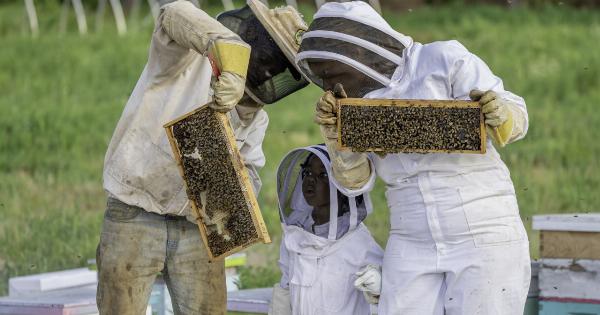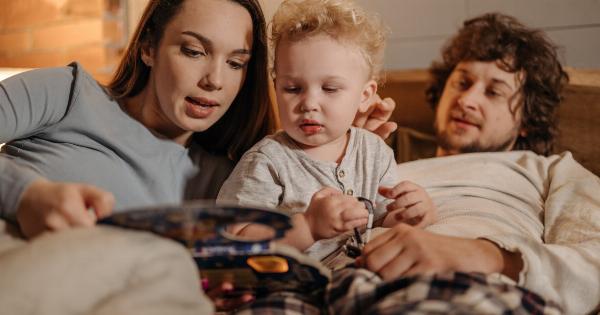Discussing sex with children can be a nerve-wracking topic for many parents.
Some parents might feel uncomfortable discussing such subjects due to various reasons, including cultural taboos, personal discomfort, or lack of knowledge on how to approach the topic. However, open and honest communication about sex and relationships is crucial for children’s sexual education and well-being.
Traditional Approaches to Talking About Sex
Many parents resort to traditional approaches when it comes to talking about sex with their children.
These methods often involve having a one-off conversation, relying on school-based sex education programs, or hoping that children will learn from their peers or media. However, several moms have come up with alternative plans to provide comprehensive and age-appropriate sexual education to their children.
H2: Using Books as a Learning Tool
One popular approach is using books as a tool to facilitate conversations about sex. These books are specifically written for children and cover topics such as puberty, reproduction, consent, and healthy relationships.
By reading these books together, parents can initiate discussions, answer questions, and provide accurate information. Many moms find this approach less intimidating and more effective in conveying important messages.
H2: Incorporating Sex Education into Everyday Conversations
Another alternative plan is to incorporate sex education into everyday conversations. This approach involves discussing topics like consent, boundaries, body autonomy, and relationships in a natural and age-appropriate manner.
By normalizing these discussions, moms create a safe space for their children to ask questions and seek guidance without feeling uncomfortable or judged.
H2: Utilizing Age-Appropriate Resources
Some moms rely on age-appropriate resources, such as documentaries, websites, and online platforms, to supplement their children’s sexual education.
These resources provide visual aids, interactive activities, and accurate information tailored to different age groups. By exploring these resources together, parents can enhance their children’s understanding in a non-threatening and engaging way.
H2: Seeking Professional Guidance
Parents who feel unsure about how to tackle this sensitive topic may seek professional guidance. This alternative plan involves consulting with sex educators, therapists, or pediatricians who specialize in sexual education.
These professionals can offer guidance and resources for parents to navigate these conversations effectively.
H2: Encouraging Comprehensive Sex Education in Schools
Advocating for comprehensive sex education in schools is another alternative plan employed by moms.
By supporting and actively participating in parent-teacher associations or engaging in discussions with school administrators, parents can contribute to the development of comprehensive sexual education programs. This ensures that children receive accurate and inclusive information in a safe learning environment.
H2: Normalizing Discussions within the Family
Moms who adopt this alternative plan make it a routine to discuss sex and relationships openly within the family. This approach involves encouraging questions, sharing personal experiences, and fostering a non-judgmental environment.
By normalizing these conversations, moms empower their children to develop healthy attitudes towards sex and relationships.
H2: Role-Playing and Scenarios
Some moms utilize role-playing and scenario-based discussions to facilitate learning about sex and relationships.
By creating hypothetical situations or using real-life scenarios, parents can guide their children on making informed choices, understanding consequences, and setting boundaries. This approach allows children to practice decision-making skills in a safe and controlled environment.
H2: Building Trust through Honesty
Building trust through honesty is an alternative plan that many moms follow.
By being transparent about their own experiences, answering questions truthfully, and admitting when they do not know something, moms establish a foundation of trust and open communication. This encourages children to approach their parents with any concerns or questions they may have, knowing they will receive an honest and supportive response.
H2: Engaging in Active Listening
Active listening is a key component of effective communication about sex. Rather than solely providing information, moms who implement this alternative plan actively listen to their children’s thoughts, concerns, and questions.
By validating their feelings and creating a safe space for dialogue, moms can address any misconceptions, provide guidance, and foster healthy attitudes towards sex and relationships.
H2: Balancing Privacy and Openness
Moms who employ this alternative plan prioritize balancing privacy with openness. Respecting a child’s need for privacy while still promoting open communication is essential.
By establishing boundaries and discussing what privacy means within the context of relationships and sexual education, moms can ensure their children feel comfortable discussing sensitive topics while still maintaining personal boundaries.
Conclusion
Discussing sex with children is an important responsibility for parents.
By embracing alternative plans, such as utilizing books, incorporating sex education into everyday conversations, seeking professional guidance, and normalizing discussions, moms can ensure their children receive accurate and age-appropriate sexual education. These approaches foster open communication, healthy attitudes towards sex and relationships, and empower children to make informed choices.


























